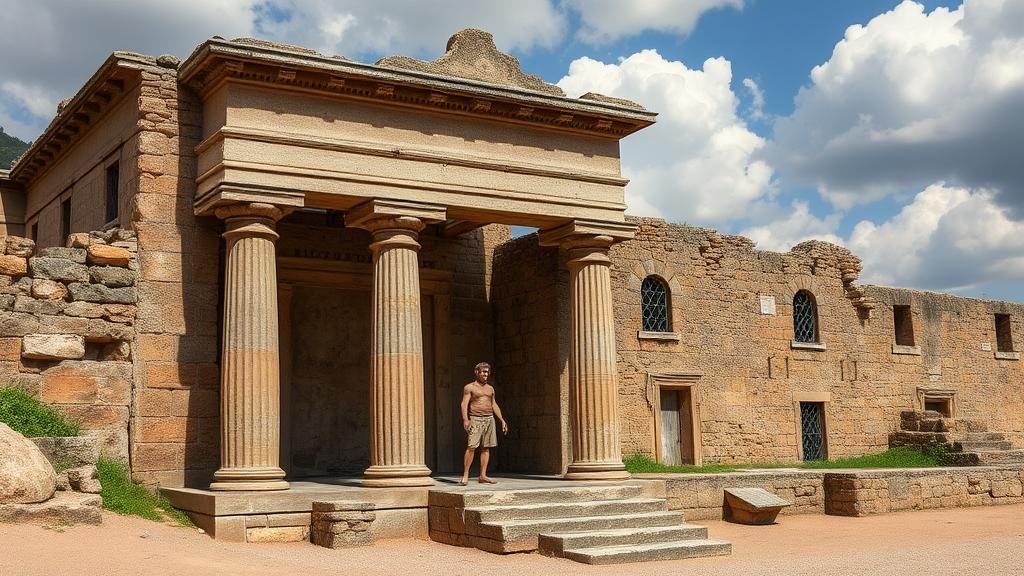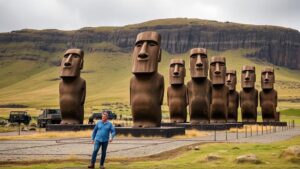Exploring the disappearance of the Etruscan civilization and their forgotten language.
Exploring the Disappearance of the Etruscan Civilization and Their Forgotten Language
The Etruscan civilization, flourishing in Central Italy from around the 8th to the 3rd century BCE, is one of antiquitys great mysteries. This advanced society played a crucial role in shaping early Roman culture, yet their enigmatic language and culture largely disappeared following their integration into the Roman Republic. This article delves into the factors behind the disappearance of the Etruscans and the peculiarities of their forgotten language.
The Rise of the Etruscans
The Etruscans first emerged in what is now Tuscany, Italy, around the beginning of the first millennium BCE. established a federation of city-states such as Tarquinia, Veii, and Cerveteri. Their rich culture, notable for sophisticated metallurgy, intricate art, and urban planning, showcased their advanced societal structure. By the 6th century BCE, Etruscan influence spread beyond Italy, notably impacting early Rome.
Factors Leading to the Disappearance
Several factors contributed to the gradual decline of the Etruscan civilization:
- Roman Conquest: The most significant event leading to the decline of the Etruscans was their eventual subjugation by the Roman Republic. pivotal moment came in 396 BCE when the Romans captured Veii after a lengthy siege, marking the beginning of Etruscan integration into Roman society.
- Political Fragmentation: The Etruscan city-states were never unified under a single government, causing vulnerability. This lack of political cohesion made them easy targets for conquest.
- Cultural Assimilation: As Etruscans were absorbed into Roman culture, much of their language and customs were lost. Etruscan aristocrats adopted Roman ways, which diluted their unique cultural identity.
Understanding Etruscan Language
The Etruscan language is another facet of this civilization that remains largely unexamined. It is unique and bears no direct relationship to any known language family, making its interpretation particularly challenging for linguists.
- Language Characteristics: Etruscan was written in a variant of the Greek alphabet. The few surviving inscriptions, approximately 13,000, mainly consist of tomb inscriptions and dedicate offerings, often revealing a complex societal structure but providing limited linguistic understanding.
- Attempts at Decipherment: Scholars like the linguist Giulio Lepschy have made strides in deciphering Etruscan inscriptions, yet a complete understanding remains elusive. The language lacks a known bilingual text, which complicates translation efforts.
The Legacy of Etruscan Culture
Despite their disappearance, the Etruscans left an indelible mark on Roman culture:
- Pantheon of Gods: Many of the Etruscan deities and religious practices were adopted and adapted by the Romans.
- Art and Architecture: Etruscan influence is seen in early Roman architecture, particularly the use of the arch and elements in temple design.
Questions on Etruscan Legacy
Many may wonder why understanding Etruscan civilization is crucial today. Examining this culture contributes to our knowledge of ancient history, specifically the rise of Rome. Also, Etruscan art and burial practices provide valuable insight into the beliefs and social structures of ancient societies.
Conclusion
To wrap up, the Etruscan civilization serves as a fascinating chapter in the history of ancient Italy. Their eventual disappearance underscores the complexities of cultural assimilation and political dominance, while their language remains an enigma, stirring intrigue among linguists and historians alike. As we continue to uncover the remnants of the Etruscan era, we must remember the influences that shaped one of historys greatest empires–the Roman Republic. Understanding this civilization provides rich context for the cultural legacies that persist in contemporary times.
Actionable Takeaways
- Explore Etruscan archaeological sites in Italy to appreciate their cultural heritage.
- Study Etruscan artifacts in museums for a perspective on their daily life and artistry.
- Engage with scholarly discussions regarding the Etruscan language to contribute to ongoing research efforts.



